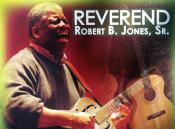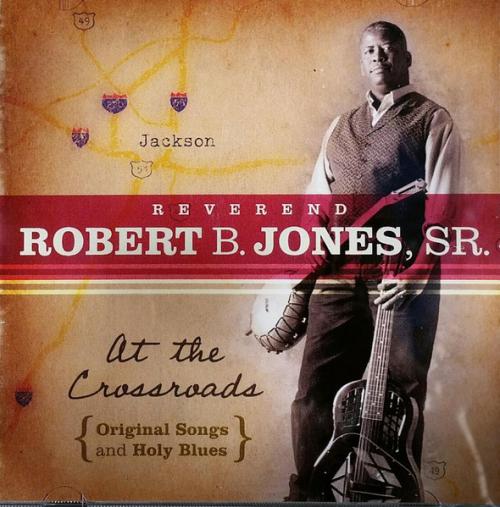Moment
Robert Jones ha dichiarato di avere scritto la canzone poco tempo prima delle elezioni presidenziali del 2020, avendo notato un generale stato di indifferenza tra gli americani.
E infatti, dopo avere ricordato momenti significativi della storia americana, l’autore conclude invitandoli a restare uniti, ad essere attivi, a impegnarsi per la grandezza dell’America.
Il titolo della canzone “Moment” potrebbe tradursi “Il momento”, cioè il momento di scrollarsi di dosso l’indifferenza e agire per realizzare il sogno di grandezza dell’America, oppure “Momenti”, per riferirsi ai momenti importanti della storia americana che l’autore cita nel testo.
Tra gli eventi citati c’è lo sbarco dei primi schiavi africani, ci sono eventi lieti come la conquista dello spazio con l’arrivo dell’Apollo sulla Luna, ci sono aspetti bui come gli episodi di razzismo del Ku Klux Klan. Tra i momenti citati c’è... (Continues)
Robert Jones ha dichiarato di avere scritto la canzone poco tempo prima delle elezioni presidenziali del 2020, avendo notato un generale stato di indifferenza tra gli americani.
E infatti, dopo avere ricordato momenti significativi della storia americana, l’autore conclude invitandoli a restare uniti, ad essere attivi, a impegnarsi per la grandezza dell’America.
Il titolo della canzone “Moment” potrebbe tradursi “Il momento”, cioè il momento di scrollarsi di dosso l’indifferenza e agire per realizzare il sogno di grandezza dell’America, oppure “Momenti”, per riferirsi ai momenti importanti della storia americana che l’autore cita nel testo.
Tra gli eventi citati c’è lo sbarco dei primi schiavi africani, ci sono eventi lieti come la conquista dello spazio con l’arrivo dell’Apollo sulla Luna, ci sono aspetti bui come gli episodi di razzismo del Ku Klux Klan. Tra i momenti citati c’è... (Continues)
Philip 2025/11/15 - 12:38
Will Cunningham

( I wrote the song based on the true story that my grandmother told me about my great-grandfather. )
“Conecuh County Alabama, 1925,
(Continues)
(Continues)
Contributed by Pluck 2023/4/6 - 14:16
( Ho scritto la canzone basata su una storia vera che mia nonna mi ha raccontato di mio bisnonno )
"Will Cunningham" - Rev. Robert B. Jones, Sr.
(Continues)
(Continues)
Contributed by Pluck 2023/4/9 - 21:58
A proposito del 1° verso ,4.a strofa :
"So, Evil got his mob together and they passed around the cup, "
allego una nota pervenutami da Simon Knight in data 8.4.23:
"I’ll explain as best I can in English. It could simply mean they passed around the cup/bottle/alcohol of some kind to get their “courage” up to commit the crime.
However, I think it means more than this. Passing around the cup suggests fellowship or communion, we are brothers in this together – a satanic version of the eucharist. That’s how I would interpret it. The KKK was a sort of satanic sect that perverted Christian values. "
Simon
"So, Evil got his mob together and they passed around the cup, "
allego una nota pervenutami da Simon Knight in data 8.4.23:
"I’ll explain as best I can in English. It could simply mean they passed around the cup/bottle/alcohol of some kind to get their “courage” up to commit the crime.
However, I think it means more than this. Passing around the cup suggests fellowship or communion, we are brothers in this together – a satanic version of the eucharist. That’s how I would interpret it. The KKK was a sort of satanic sect that perverted Christian values. "
Simon
Pluck 2023/4/10 - 10:44
The Darkness of Blackness

[2002]
Lyrics and music / Testo e musica / Paroles et musique / Sanat ja sävel: Rev. Robert B. Jones Sr.
Album / Albumi: At the Crossroads
Note dal blog "pancocojams " di Azizi Powell:
Rev. Robert Jones - "The Darkness of Blackness"
I assume that Melville is the novelist Herman Melville", but I'm not sure which story this is "about men [Black or otherwise] who "came in on the tide". Here's some information about Herman Melville
from wikipedia
"Herman Melville (born Melvill;[a] August 1, 1819 – September 28, 1891) was an American novelist, short story writer, and poet of the American Renaissance period. Among his best-known works are Moby-Dick (1851); Typee (1846), a romanticized account of his experiences in Polynesia; and Billy Budd, Sailor, a posthumously published novella. Although his reputation was not high at the time of his death, the 1919 centennial of his birth was the... (Continues)
Lyrics and music / Testo e musica / Paroles et musique / Sanat ja sävel: Rev. Robert B. Jones Sr.
Album / Albumi: At the Crossroads
Note dal blog "pancocojams " di Azizi Powell:
Rev. Robert Jones - "The Darkness of Blackness"
I assume that Melville is the novelist Herman Melville", but I'm not sure which story this is "about men [Black or otherwise] who "came in on the tide". Here's some information about Herman Melville
from wikipedia
"Herman Melville (born Melvill;[a] August 1, 1819 – September 28, 1891) was an American novelist, short story writer, and poet of the American Renaissance period. Among his best-known works are Moby-Dick (1851); Typee (1846), a romanticized account of his experiences in Polynesia; and Billy Budd, Sailor, a posthumously published novella. Although his reputation was not high at the time of his death, the 1919 centennial of his birth was the... (Continues)
Melville told a tale of a preacher who cried
(Continues)
(Continues)
Contributed by Pluck 2023/3/4 - 12:00
Song Itineraries:
Racism and Slavery in the USA
Riccardo Venturi 31-3-2023 18:44
Lasciando la traduzione letterale fornita da Pluck, ecco qui invece una versione interpretativa. E' un testo non propriamente semplice da rendere; ma la difficoltà centrale è rendere adeguatamente il termine blackness, fondamentale nel testo. Appare chiaro che il senso del termine è l' “essere neri”, con tutto ciò che ha comportato e comporta. “Blackness” ha peraltro una gamma di significati abbastanza vasta: si va dalla semplice “nerezza”, vale a dire la qualità del colore nero, alle “tenebre fitte”, al “buio pesto” (in questo è sinonimo quasi perfetto di darkness, il che pone un'altra difficoltà di resa) e al “pessimismo”. E' evidente che proprio sulla sinonimia tra “darkness” e “blackness” si gioca tutto il testo. Scartando la perifrasi “essere neri”, pesante e involuta con il suo infinito sostantivato, esiste pur sempre, in italiano, il termine “negritudine”... (Continues)
Lasciando la traduzione letterale fornita da Pluck, ecco qui invece una versione interpretativa. E' un testo non propriamente semplice da rendere; ma la difficoltà centrale è rendere adeguatamente il termine blackness, fondamentale nel testo. Appare chiaro che il senso del termine è l' “essere neri”, con tutto ciò che ha comportato e comporta. “Blackness” ha peraltro una gamma di significati abbastanza vasta: si va dalla semplice “nerezza”, vale a dire la qualità del colore nero, alle “tenebre fitte”, al “buio pesto” (in questo è sinonimo quasi perfetto di darkness, il che pone un'altra difficoltà di resa) e al “pessimismo”. E' evidente che proprio sulla sinonimia tra “darkness” e “blackness” si gioca tutto il testo. Scartando la perifrasi “essere neri”, pesante e involuta con il suo infinito sostantivato, esiste pur sempre, in italiano, il termine “negritudine”... (Continues)
Le tenebre della negrezza
(Continues)
(Continues)
Completo con una nota dell'Autore del 6.4.23
Anyway, as you have noticed in "Darkness Of Blackness". the song starts with the phrase "Blackness of darkness"; then for most of the song, the phrase in "Darkness of Blackness", but at the end of the song, it returns to "Blackness of darkness". The question is, why? Well, when I was in high school, we read the book, "Moby Dick", by Herman Melville. Melville describes a sermon that a minister, whose real name was Rev. Mudge delivered to a group of African American sailors at a historic church in New Bedford, Massachusetts. This church, that still stands in New Bedford, was a place that was refuge for sailors, both black and white, that worked in the, always dangerous, whaling industry. Rev. Mudge's text came from the book of Jude (which has only chapter). Beginning at verse 6 Jude describes the angels that left their "first estate", in rebelling... (Continues)
Anyway, as you have noticed in "Darkness Of Blackness". the song starts with the phrase "Blackness of darkness"; then for most of the song, the phrase in "Darkness of Blackness", but at the end of the song, it returns to "Blackness of darkness". The question is, why? Well, when I was in high school, we read the book, "Moby Dick", by Herman Melville. Melville describes a sermon that a minister, whose real name was Rev. Mudge delivered to a group of African American sailors at a historic church in New Bedford, Massachusetts. This church, that still stands in New Bedford, was a place that was refuge for sailors, both black and white, that worked in the, always dangerous, whaling industry. Rev. Mudge's text came from the book of Jude (which has only chapter). Beginning at verse 6 Jude describes the angels that left their "first estate", in rebelling... (Continues)
Pluck 2023/4/10 - 10:19
×
![]()


Trascrizione della canzone "Moment " composta dal Rev.Robert Jones nel 2020 come eseguita dall'Autore al Concerto del 15 Febbraio 2024 alla Library of Congress.
La traccia inizia a 49:54 del video:
Rev. Robert B. Jones, Sr. Concert-Library of Congress
Spoken:
That’s right ,because it was prior to the presidential
election [2020] and I wanted to encourage people coming
out of COVID to shake off our complacency and go to vote.
So I wrote this song and these words started to spill
into my brain.